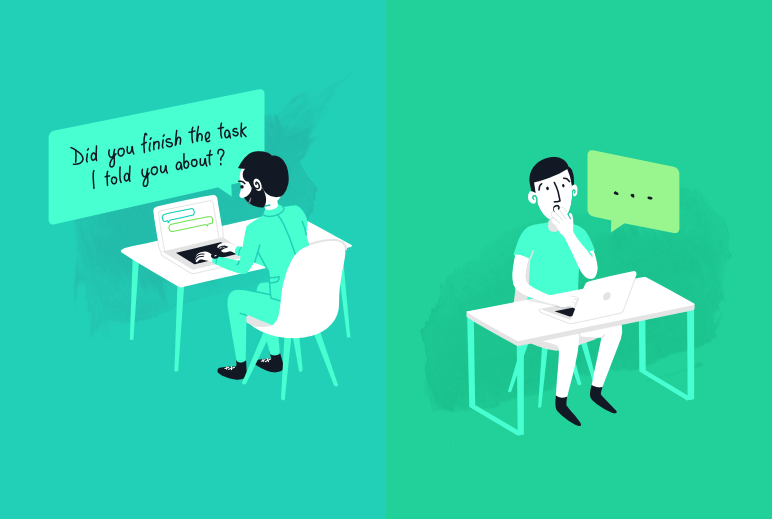Work has come a long way, from partitioned cubicles and rigid hierarchies to open spaces stuffed with healthy snacks and free lunches where everyone can call each other by their first name. Today, companies of all sizes go beyond these simple office perks. They provide paid sabbaticals, pet insurance, gym membership, on-site kindergartens, upskill opportunities, even free housing in some cases.
All this is to retain the top talents in their industry and make sure they work happily in a rapidly-changing work environment—especially now that work culture has shifted even more due to the COVID-19 pandemic and the Great Resignation of 2021. It’s best to know how to prepare to work remotely, be it full-time or part-time, without experiencing burnout and cognitive load.
But is it really worth going to great lengths to ensure employee satisfaction?
It is. Companies have begun to base their HR strategies on positive psychology, linking happiness to several benefits. For example, researchers from Carleton University in Canada found out that people who are happy at work tend to be 15% more productive. They also have improved mental and physical health, as happiness puts their bodies in a state of repair and recovery.
However, achieving this goal at the expense of accumulating “goodies” can only go so far. More money, more benefits, and more of anything will short-circuit our well-being in the long run. In fact, salaries don’t play a significant role in this equation after a certain threshold has been reached ($75.000/year) when other factors come into play.
Speaking of goals and money, if you’re unsure when you should invoice your clients, what is an electronic invoice, or how to avoid invoicing mistakes, learn all about it in this invoicing guide.
That’s because we get used to things pretty easily and fall back on a comfortable cushion known as the “status quo.” It’s like the law of diminishing marginal utility: the more you consume something, the less satisfied you’ll be with each consumption unit.
So we’re not actually happy but merely satisfied. This is the correct distinction made by Alexander Kjerulf, a Danish management consultant and Chief Happiness Officer at Woohoo, at a TEDx talk in Copenhagen.
Satisfaction comes from what we think about our job with our rational brain, nothing sexy or compelling. Meanwhile, happiness stems from what we feel about our work, the small things that fire us up and make us go to the office with joy.
Kjerulf says that happiness at work depends on only two things: results and relationships. Getting results is about making a difference in a field that is meaningful to you, receiving appreciation, and being proud of it at the end of the day. On the other hand, relationships are all about having a great time with those you work with, including your clients.
It sounds simple. But in reality, certain obstacles hinder us in our tracks. The most common one is the illusion of overwork. We often think that success comes from the number of hours spent at the office. That’s why we’re the first ones to come and leave work, wearing this “working hard” attitude like a badge of honor.
Simpler tasks will take much longer to complete because of the higher cognitive load (read: overload) and mental fatigue. We’ll skimp on sleep, which will affect work.
This will only cause burnout in the long run and soon become a habit that others will expect from us, which will affect our personal productivity. Burnout leads to a desire for instant gratification and, inevitably revenge procrastination, which again will affect us negatively.
Most of the productivity apps out there have their fair share of the blame for this procrastiwork, tricking us into thinking that we can squeeze as much work as possible into an hour. The truth is that great, everlasting work takes time and involves our entire self: mind, body, and energy. Hence, we should guard them as best as we can.
Another obstacle is a misalignment of our core values. We should build our careers on our internal values, like our mission and relationships, and not on external ones, like money and prestige. In fact, millennials, now the largest generation in the U.S. labor force, choose work happiness over financial compensation. 64% of them would work at a job they love that pays $40.000/year over a $100.000/year job that bores them.
To get over them and instill happiness at work, consider the following five tips:
- Start your day with a small act of kindness. If you look up the TEDx video mentioned before, Kjerulf gives us the simplest tool in his arsenal: “Good Morning!”. Yes, a simple greeting can make you and your colleagues’ day. But put some work into it to make it genuine. Once you arrive at the office, make eye contact with the colleagues you greet. Also, ask them how they’re doing, even shake their hands, or pat them on the back to make them feel comfortable.
- Hire happy people. Be serious about cultural fit like Zappos is. They use an interviewing technique called the “Nice Guy” test to choose the right candidates. They’ll pick up the candidates from out of town with a shuttle and give them a tour before the actual interviews. If they found out at the end of the day that the shuttle driver wasn’t treated well, the interview process stops there, no matter how well the candidate performed. The lesson? Hire for attitude first, then teach skills.
- Have reasonable working hours. Recognize that your employees have a personal life outside their work and respect it. We live in a culture where working hard and getting by with little to no sleep stands for “work ethic, or toughness, or some other virtue,” to paraphrase Maria Popova in her book, Tools of Titans. You can use one of these best group task management software, which is easy to use on a desktop to help your team organize their task more efficiently.
- Give and ask for feedback. Often, feedback comes too late. When you require it the most, ask for it to shorten the learning cycle and improve yourself faster. When expressing it, do it in a constructive, actionable way to build team spirit among your colleagues. Beware the tone, though. You don’t want to come off as a snob.
- Focus on the wins—even the small ones. Like helping out a colleague, finishing that task before its due date, or throwing out a Snickers bar packaging someone left on the kitchen table. These are all actions that impact the company, no matter how small they are. Be more intentional next time and do more of them each day.
In the end, remember that being happy at work doesn’t depend on perks. It’s more about getting meaningful things done and sharing the results with your colleagues and clients. This way, you can all enjoy it together—something we can all do and benefit from.
First published on May 24, 2018.

Andrei Țiț
Author
Andrei Țiț is a product marketer at Ahrefs. He has been involved in product marketing at various SaaS companies for over six years, specializing in content marketing and short-form video. In his free time, he enjoys cooking and traveling.



